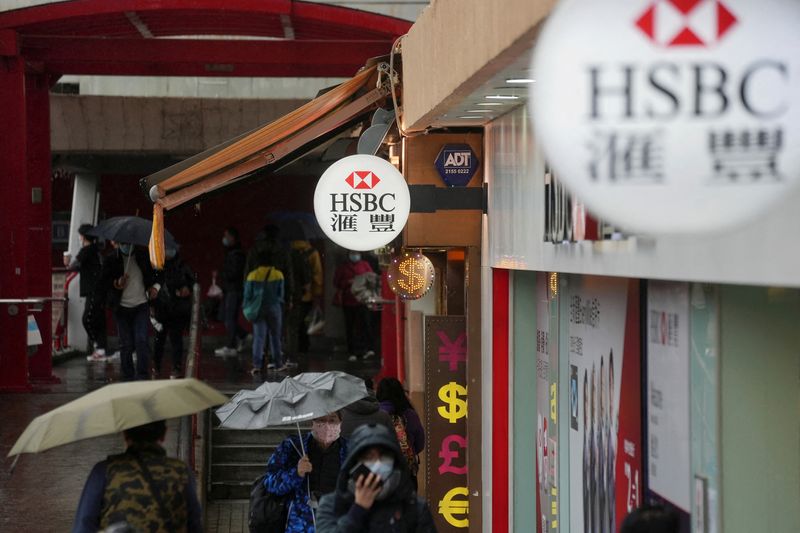LONDON (Reuters) - Two influential lawmakers in the United States and Britain accused HSBC on Friday of contributing to the oppression of people in Hong Kong by thwarting their attempts to access pension funds in order to emigrate.
The intervention piles further pressure on HSBC, which has attracted criticism for allegedly mistreating customers who have fled Hong Kong in the wake of China's anti-democracy crackdown, against a backdrop of rising geopolitical tensions.
Mike Gallagher, chair of a U.S. Congress select committee on China, and Alicia Kearns, chair of Britain's Foreign Affairs select committee, said they had "deep concern" about HSBC's conduct in a letter to HSBC CEO Noel Quinn dated June 30 and seen by Reuters.
The lawmakers accused HSBC of declining applications from Hong Kong residents who hold British National Overseas (BNO) passports for early withdrawals of funds from the island's Mandatory Provident Fund (MPF) scheme before emigrating.
A HSBC spokesperson said the bank was following local rules. The letter was earlier reported by the Financial Times.
Thousands of Hong Kongers have begun new lives in Britain since the passing of the National Security Law (NSL) in 2020, which criminalised acts of dissent and was widely interpreted by critics as Beijing's key weapon against pro-democracy movements in the region.
After Britain offered Hong Kongers with BNO passports a route to move to the UK, the MPF authority (MPFA) running the island's pension scheme said they would not accept this as a valid document. HSBC is a trustee institution of the MPF pension scheme, the letter said.
The lawmakers' letter asked HSBC to provide further information about its involvement in denying BNO passport holders access to pensions - including about the extent of its communications with Chinese and Hong Kong authorities on the matter.

"In the case of permanent departure, scheme members are required to provide evidence of the right of abode outside of Hong Kong," the HSBC spokesperson said.
"The MPFA has published guidance as to what evidence scheme members may rely on and, like all banks, we have to obey the law and the instructions of the regulators."